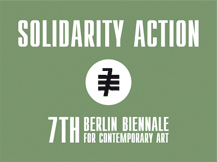Since time began art has always been a catalyst of what happens. So in this moment too, it should be the thermometer of our time and play a major role in our society, as a solid foundation on which to rely seems to be lacking. The lack of necessary resources to finance new production and purchases of works is also a result of ineffective legislation. I think it is fundamental to promote fiscal reform that can really help cultural institutions, making it possible to cut structural costs and invest in programming. The creation of independent funds should be a fundamental component to finance projects and to make art institutions themselves autonomous, capable of relying on their own budgets. For example, a concrete possibility to achieve this would call for companies to set aside a percentage of their income for culture. Actually, the big problem of our country is politics, which has entered every part of everyday life, with incompetence and patronage that – as we have seen – paralyze the state of things without offering any possibility of growth and research. The quality of our politicians is truly low, they have no expertise except that of lobbying on all levels. At the moment, in Italy, it is impossible to work well in the institutions. The commercial sector is indispensable and a source of vitality for the art world. Without it, the art system would not exist. As in all spheres of work, the precarious state of the system has changed the nature of competition, which has become unhealthy. Certainly the non-profit organizations are “innocent” because they do not concentrate on the market but on projects of a social character, and this is the real key, around which to group. The responsibility of the art system is very important, because it precisely the place to begin to send a positive message for the present and the future, with projects that involve the city and the society in which we live. The duty of art is to imagine a better future. In all civilized countries this is the case, but in practice, in Italy, it is very difficult. I hope that in that better future, when everyone will pay his taxes, the State will be a State and not a tyrant; only at this point can the citizens establish a better relationship with the political class, and will it be possible to talk about projects and the handling of economic resources.
As the president of a non-profit foundation I have never heard artists complaining about being manipulated. But I think the opportunities for Italian artists to work for institutions are very few, because most of the time the institutions invite foreign artists. It will not suffice to rethink Rome in a municipal and federal perspective. First, it is necessary to reformulate the art system on a national level, and then to intervene on the regional and provincial levels.
FLAVIO MISCIATTELLI
Founder and president of the Pastificio Cerere Foundation for the promotion of contemporary art, created in Rome in 2004.


